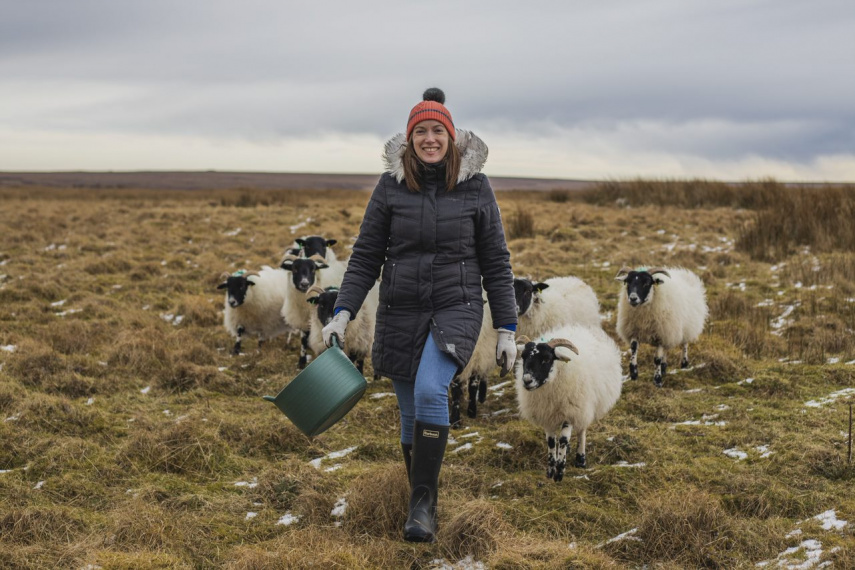
Shaping land reform – your chance to make an impact
Sally Reynolds
The Scottish Government has launched a public consultation on proposals for the new Land Reform Bill, which is open until 30 October. We are encouraging people to respond to help shape the next step of Scotland’s land reform journey, and our Chair and Land Commissioners share their thoughts on why it's important to get involved in a new series of blogs. The second blog in the series is from Land Commissioner Sally Reynolds.
Individuals living in the Western Isles have experienced first-hand the changes and benefits brought about by having a say in how the land around them is owned, managed and used – and now everyone is being given the chance to positively impact the upcoming Land Reform bill by having their say and responding to the open public consultation.
Even though over 70% of land across the Western Isles is currently community owned, it shouldn’t stop there for islanders in their bid to influence the culture of how Scotland’s land is used and owned, as there is still more to do.
Over the last five years, the Scottish Land Commission has been working to provide a robust evidence base to support recommendations for making land work better in the public interest, and to highlight the opportunities that land reform can bring to Scotland and its people.
Now everyone can make a meaningful contribution to the debate by sharing their views and taking part in the consultation on the upcoming Land Reform Bill launched by the Scottish Government.
Scotland is the first country in the world to have a Land Rights and Responsibilities Statement, or LRRS, which sets out the vision for a strong and dynamic relationship between Scotland’s land and its people. The Scottish Land Commission’s Land Rights and Responsibilities Protocols have been created to set out practical advice to landowners, land managers and their advisors on topics such as community engagement in decision-making around land and managing natural capital. These protocols apply to everyone and following them responsibly will ensure land is used to benefit Scotland as a whole. Although adhering to the protocols is currently voluntary, following them is good practice, and there is no need to wait for legislation for landowners, managers, and users to make the most of responsible practice. One of the recommendations to be considered for inclusion in the Land Reform Bill is to strengthen the LRRS and to make it a legal duty for large-scale landowners to comply with the associated codes and protocols.
There are long-standing concerns about the highly concentrated pattern of land ownership in rural areas of Scotland and the monopoly of power this creates.
The proposals in the consultation include the introduction of a public interest test for the transfer of large-scale landholdings and a requirement on owners to give prior notice to community bodies if they intend to sell.
There would also be greater transparency on who owns Scotland’s land if a proposed measure was adopted, which would require those benefiting from public funding and seeking subsidies to have land listed in the Land Register.
After chairing the Scottish Land Commission’s ‘Natural Capital & Land’ webinars – which had more than 200 attendees – it quickly became evident of the sheer level of interest in the topic of the nation’s move to net zero, investment in carbon and natural capital and what it means for Scotland's land and communities in terms of both risks and opportunities.
The way we own, manage and use our land – across the Western Isles and the whole of Scotland – can rise to today’s challenges around net zero, nature restoration and a just transition. The Scottish Land Commission has pulled together all of the Commission's research and evidence, proposals and quick guides to provide the background information to the Scottish Government’s Land Reform Bill consultation and this can be found on our website.
There has been incredible progress made on our land reform journey but there is still work to be done. To get the balance right it is important that Scottish Government hears a wide range of views and I would urge people to make their own contribution by visiting the online portal, Land Reform in a Net Zero Nation, which remains open until 30 October.

This blog first appeared as an op-ed in The Stornoway Gazette.